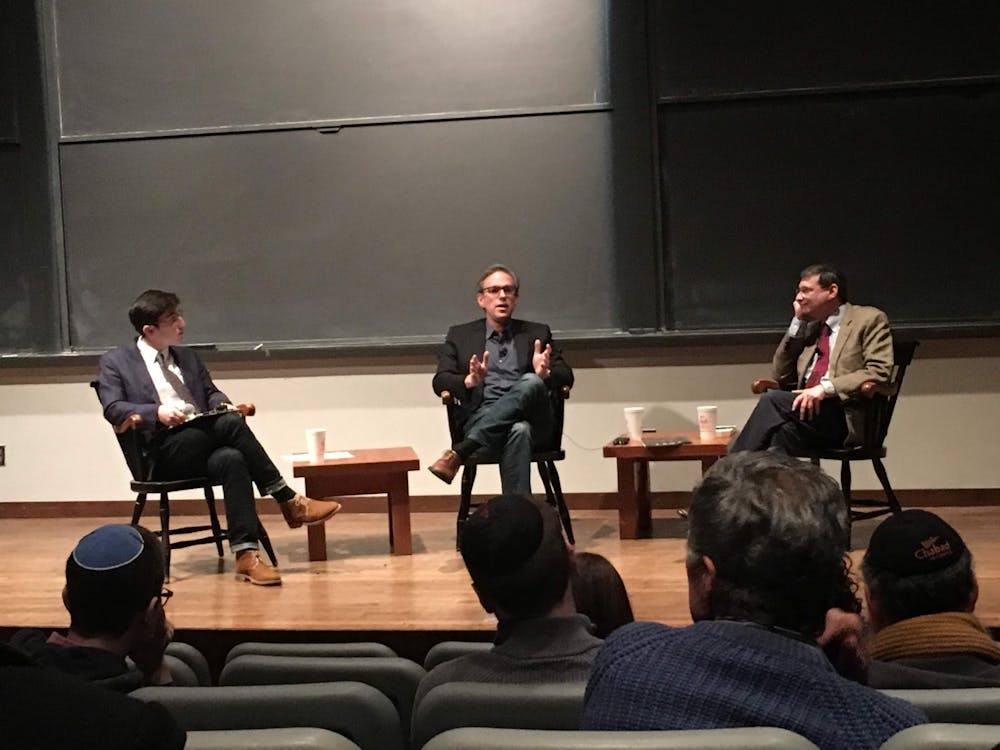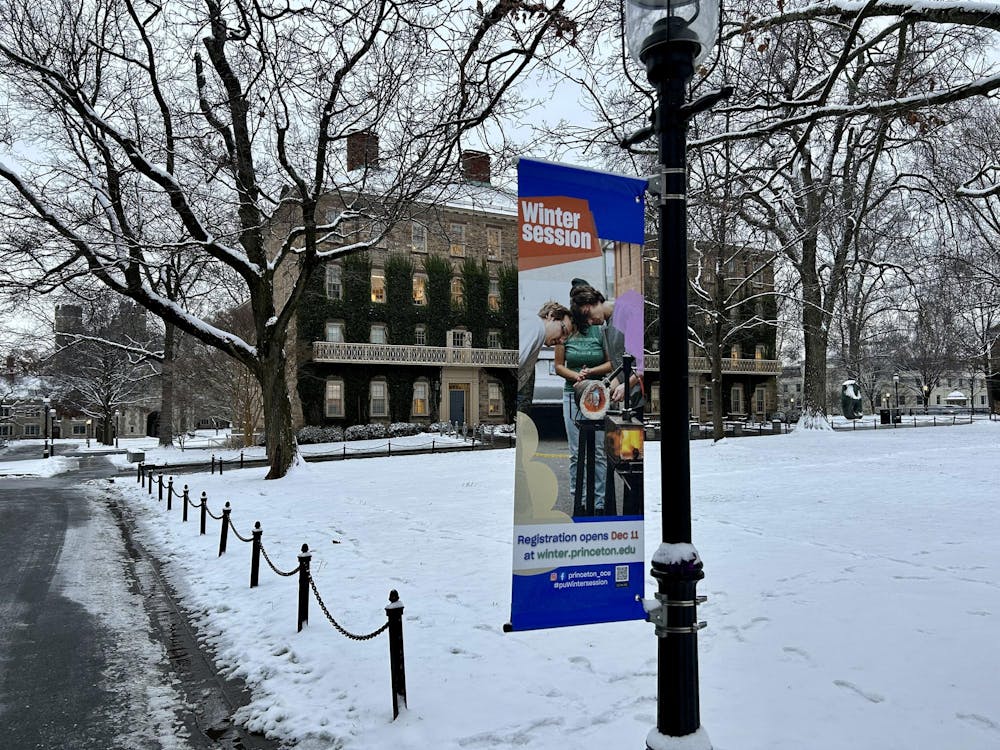The Republican Party is at a crossroads, agreed Bret Stephens and Yoram Hazony ’86 during a lively discussion, titled “Nationalism, Conservatism, and the Future of the GOP,” held by the Princeton College Republicans on Tuesday. They couldn’t agree on much else.
The direction the GOP takes regarding nationalism, which Stephens and Hazony disputed, could determine the electoral future of the United States and even the world.
“The countries we live in are dissolving,” said Hazony, an Israeli political theorist and author of “The Virtue of Nationalism.” “They’re headed for civil war.”
He sat on stage across from Bret Stephens, a Pulitzer Prize-winning columnist for the New York Times and a prominent conservative writer. Contrary to Hazony, however, Stephens believes in a strong American international presence. Both speakers, known for their contributions to modern conservative thought, spoke before a sizable audience, which included many members of the Princeton College Republicans.
Their opposition brought to light a widening rift emerging in the Republican Party between proponents of nationalism and its skeptics. The conversation, which took place in McCormick 101, provided a glimpse at the intensely polarized debate.
Both speakers struck a pessimistic tone. “Once you establish [nationalism] as a guiding principle of all politics, people who aren’t willing to participate are going to have to get on trains and run for their lives,” Stephens said, before referencing the partition of India and postcolonial countries in Africa, among other examples.
In Hazony’s view, nationalism functions as a saving grace, rather than a catastrophe. In fact, he believes that nationalism ultimately aims to preserve diversity around the world, by promoting the independence and free will of each country.
“Where we as Americans, as Westerners, tend to see a way to bring peace and prosperity to the world, others see that as a new form of imperialism,” Hazony said. He later added, “We’re not choosing nationalism or not nationalism, we’re choosing between nationalism and imperialism.”
Hazony compared this vision of the United States to the Roman Empire. “You are a Roman,” he said to Stephens.
Yet Stephens playfully described Hazony’s thesis as “total garbage and hypocritical and absurd and dangerous.”
He sees the nation-state concept encouraged by Hazony as fundamentally un-American.
“We are a nation in which it makes total sense to be in this room regardless of different identities as individuals in a liberal democratic republic,” Stephens said. “Conservatism should champion that liberal democratic idea.”

He characterized the American identity as a set of liberal values, rather than a common geography, religion, tradition, or culture.
“I’m not interested in an America as the place that is bounded by the 49th parallel, the Rio Grande and the two oceans,” Stephens said. “I’m interested in an America that is founded on a set of principles and ideas.”
The conversation also turned to the state of Israel and the fate of Jewish people in a nationalist world. Despite their shared Jewish heritage, Stephens and Hazony clashed on nearly all fronts.
In one exchange, Stephens described Hazony’s proposition as “blood and soil nationalism.”
“I don’t recognize myself in any of this blood and soil, which is just a way of waving Nazi at me,” Hazony said in response.
He had begun the conversation by identifying himself as a “Zionist Jewish nationalist Israeli” and described Israel as a country with a “nationalist political tradition,” an example of nationalism existing at the core of liberation movements.
But Stephens contended that it was American interventionism, not nationalism, that led to Israel’s existence in the first place, as a result of the Truman Doctrine in 1947, which called for the protection of “small embattled countries.”
“Those of you in this room — I see a lot of kippahs — those of you who are concerned about the safety and security of Israel should be so glad that the United States, at moments like 1973, didn’t simply say, ‘The Egyptians and the Israelis want to duke it out? Fine by us,’” Stephens said.
He pointed to Hazony. “I’m almost more pro-Israel than this guy.”
“In a twisted way,” Hazony said.
The two speakers did find common ground during the question-and-answer session when discussing immigration. They agreed that the white identitarian movement in the United States is a rising threat.
What to do about this threat and how to protect vulnerable groups from its rise remains an open question, as does the best course of action for the Republican Party and the United States as a whole.
According to Hazony, that course of action has already been decided by the American people, who increasingly reject Stephens’ notion of America as the world’s policeman: “If we don’t want to be floating in the world of fantasy, then we have to admit that nationalism is here.”








